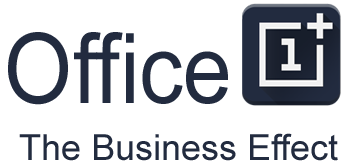There are several ways in which data science is being used in the finance industry. Some examples are algorithmic trading, customer data analysis, risk management, and stock market prediction. Data scientist in this field must thoroughly understand their field and the industries they are working in.
Algorithmic Trading
Algorithmic trading is a type of automated trading that utilizes algorithms to analyze massive datasets and predict future market trends. Using these algorithms, informed traders can build and maintain financial portfolios that minimize risk. Algorithmic trading first appeared in the 1970s with the rise of big financial institutions. These large financial institutions dominated the financial market for centuries, but more recent developments have seen hedge funds take a significant share of the market. This is due to the digital revolution, which has reduced barriers to entry into the market and made high-speed Internet and data science tools more affordable for the general public. Experts in the field like David Johnson Cane Bay Partners mentioned that algorithmic trading is based on data science and quantitative analysis. This means traders developing this method must understand quantitative analysis and modeling and have experience in the financial markets.
Stock Market Prediction
Data scientists use algorithms to predict the future performance of stocks. These algorithms identify the best time to buy or sell stocks. The government and banks also use this information to determine the risk of loans. Previously, investors relied on financial statements and sales figures to make decisions. Now, they use data from alternative sources, such as consumer reviews and social media activity. Professionals in the field of finance like David Johnson Cane Bay believe that at times stock market prediction used to be very complex and time-consuming. But thanks to advances in machine learning, this process has been simplified. Today, trained computer algorithms outperform human analysts. These programs are more accurate than ever and can save money and time. Another advantage of using trained algorithms over human analysts is that they don’t factor in prejudices and emotions.
Customer Data Analysis
Customer data analysis is a key tool that finance firms use to create better customer experiences. By analyzing customer data, these firms can group similar customers and understand how they are related based on transactional and behavioral factors. Through advanced analytics such as data commercialisation, scientists would be able to forecast future trends and possible business ventures based on the customer data acquired.

Customer data analysis is critical to the success of financial institutions. With big data and social media, financial institutions’ operations have changed drastically. While structured data is relatively easy to process, unstructured data presents unique challenges. The best data science tools can help finance companies process unstructured data.
Risk Management
Today’s businesses face a variety of challenges and risks. These risks may be natural, economic, reputational, or operational. Risk management is a process that allows an organization to make better decisions and minimize the negative effects of risk. Risk management is one of the most important aspects of running a business. Investing in the tools and processes that help businesses manage risk will protect them from losses, uncertainty, and failure. The 2008 financial crisis exposed the weaknesses in traditional risk management tools. These shortcomings prompted increased financial regulation, limiting companies’ risk. On the other hand, data science allows firms to measure risk across their organizations better and identify risks early on. It can also be used to evaluate customers’ creditworthiness better, improve risk-scoring models, and optimize costs.
Risk analytics is a crucial area of data science in the finance industry. With the right tools and data, companies can use this information to make better decisions and increase the trustworthiness of their business.

